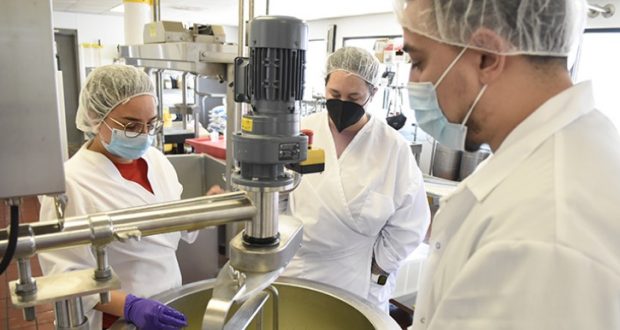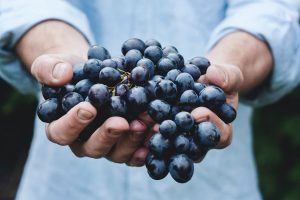FRESNO STATE — The Jordan College of Agricultural Sciences and Technology at Fresno State received two of only nine grants awarded nationwide from the U.S. Department of Agriculture, National Institute of Food and Agriculture to expand efforts to educate students and conduct agricultural research and other activities.
 The college received nearly $900,000 of the $4 million in Capacity Building Grants for Non-land Grant Colleges of Agriculture. The goal is to help these colleges develop the infrastructure to do agricultural research and to teach and conduct outreach activities while also increasing professional development opportunities for faculty and increasing the number and diversity of qualified graduates entering the industry.
The college received nearly $900,000 of the $4 million in Capacity Building Grants for Non-land Grant Colleges of Agriculture. The goal is to help these colleges develop the infrastructure to do agricultural research and to teach and conduct outreach activities while also increasing professional development opportunities for faculty and increasing the number and diversity of qualified graduates entering the industry.
“These two grants represent the hard work of grant writing by Drs. Licon, Pheasant, and Brillante, along with our pre-award grant research administrators, Maral Kismetian and Director Doug Carey,” said Dr. Joy Goto, interim dean of the Division of Research and Graduate Studies at Fresno State. “Research infrastructure is absolutely critical for the success of our grants because it supports not only the faculty and student researchers but the administration of grant activity, pre- and post-award.”
The grants were awarded to the following Fresno State faculty:
$750,000 to Dr. Carmen Licon, assistant professor of food science and nutrition.
Dr. Licon and Dr. Susan Pheasant, director of the Institute for Food and Agriculture at Fresno State, in partnership with the California Dairy Innovation Center and Leprino Foods, will lead an effort to strengthen the food and dairy processing program at Fresno State.
Plans are to purchase state-of-the-art equipment to expand production at the Fresno State Creamery and to increase the knowledge and skills of the students who will be part of tomorrow’s dairy and food workforce.
Paid internships are planned for graduate and undergraduate students, and the development of regional conferences, workshops, webinars and short courses that students and faculty can participate in. The program will also provide outreach and technical assistance to dairy businesses.
Another component of the project is establishing an institute for ethnic and specialty dairy product development to create new dairy — and culturally diverse — products to meet the evolving trends of the region.
“I don’t have words to express how happy and excited we are,” Dr. Licon said. “It really complements what we are building in the long run. This project is part of a long-term vision for Fresno State. This is not a program that will end in the next three years. Our mission is to work for the dairy industry and our students in the long term.”
Drs. Licon and Pheasant have worked over the past few years to elevate and improve dairy business innovation at Fresno State by upgrading facilities but also working to position students, faculty and staff to support industry partners in the newly-created Pacific Coast Coalition for dairy processors. This latest grant will help increase this effort.
$149,943 to Dr. Luca Brillante, assistant professor of viticulture, and Bronco Wine Company Viticulture Chair.
Dr. Brillante will focus on spatial analysis of plants and soil with the purchase of new, state-of-the-art equipment that will allow faculty and students to do innovative research on campus.
That means using high-tech remote sensing applications and other technology to determine if plants need or don’t need extra resources, like more water or fertilizer.
“Central Valley and USA agriculture is characterized by large surfaces. It is impossible for managers to look at each plant individually. When soil or climate change — even within the same block — plant performances also change.” Dr. Brillante said. “To grow more with less, it’s important for us to assess spatial variability in field conditions and understand where plants need additional resources and where they don’t need resources.”
Currently in the college, we are developing innovative systems using artificial intelligence and hyperspectral sensing, that can achieve a level of monitoring and mapping of agricultural features that is unprecedented.
He adds there is a growing industry behind these services, and farmers are starting to leverage new technologies in production contests.
“We want to empower our students to know what these techniques are,” Dr. Brillante said, “how to leverage them, and intern in innovative companies and empower some of the research in order to improve the ability of agriculture to obtain this information on agricultural variability and resource utilization, to remain competitive in a global market and despite the change in climate.”
By BoNhia Lee.
Ever wonder how wine is made? Check out this episode of Modern Marvels.








